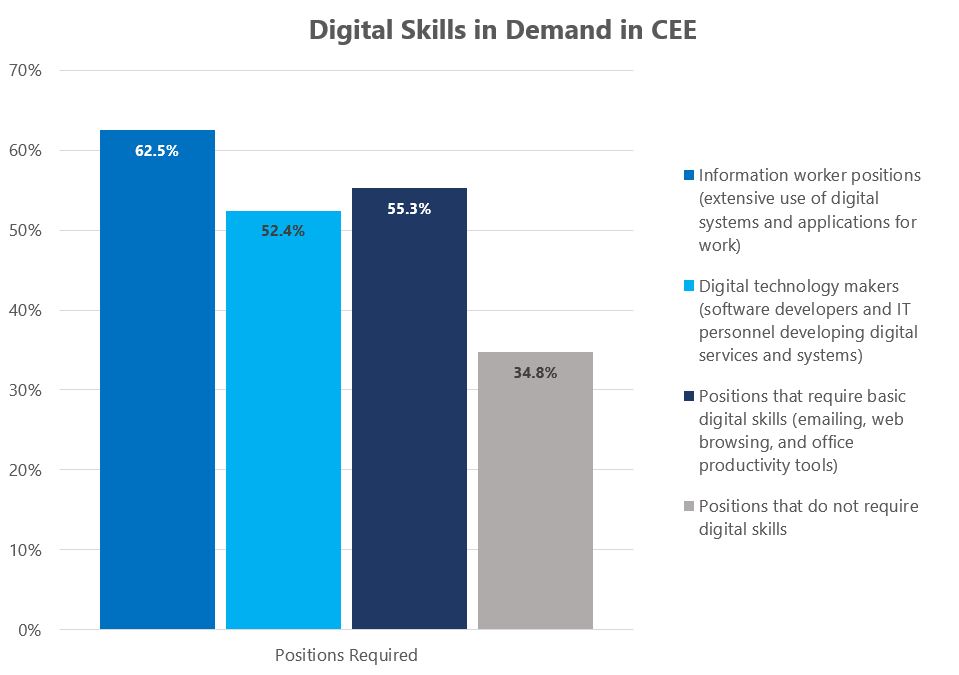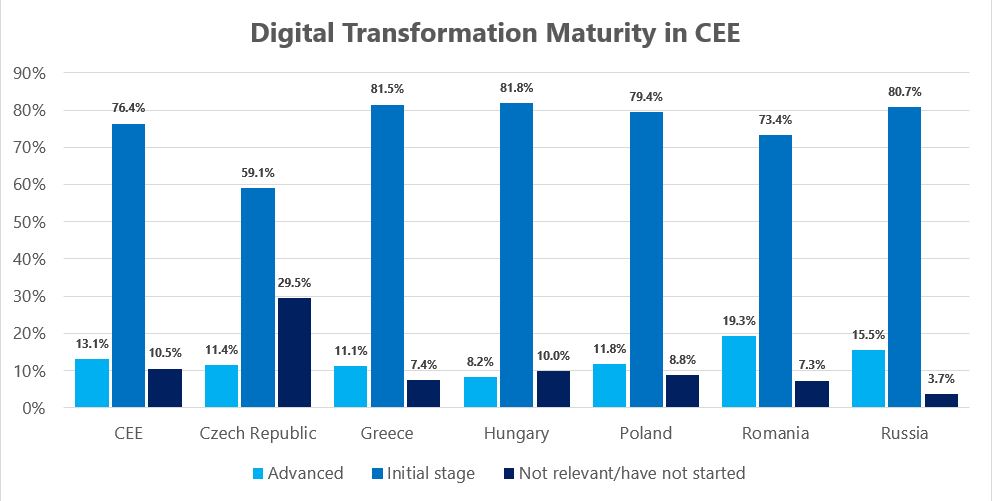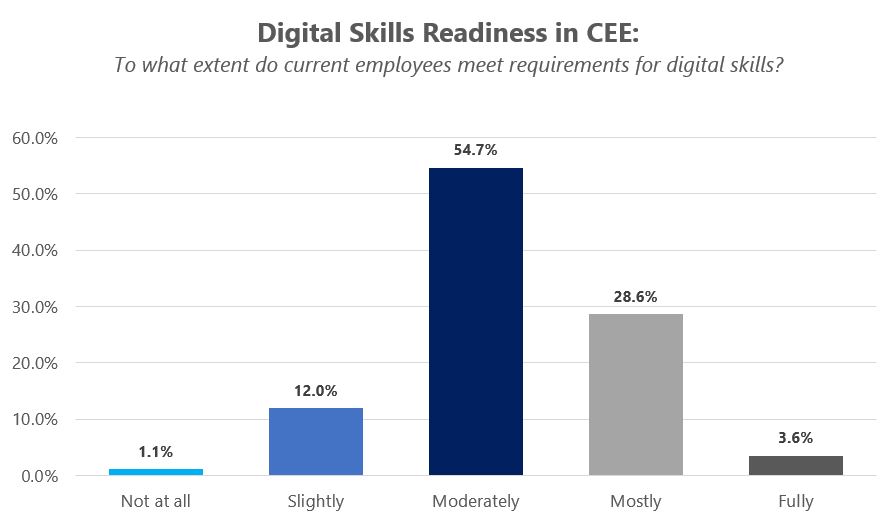
Up-skilling is crucial to maintain digital transformation acceleration, a new Central and Eastern Europe survey finds
Today every company is becoming a digital company. Businesses and entire industries are transforming. Disruption is real, and the implications for jobs and skills will be far reaching. Adoption of the cloud, artificial intelligence and other advanced technologies is accelerating, but technology alone is not enough to drive digital transformation, gain a competitive edge and deliver growth.
A new survey -The State of Digital Skills in CEE* – conducted for Microsoft by IDC, finds that companies in CEE (Central and Eastern Europe) who have adopted cloud technologies are generating 35% more demand for digitally skilled people vs non-adopters. Consequently, many businesses are already facing a skills crunch: only 3.5% of employees in CEE today fully meet digital skills needs. Without action, the existing gap between supply and demand will only widen.
“Our experience and research show that businesses need to create ‘tech intensity’ – a combination of technology adoption with skills and a culture of learning – in order to innovate at speed and scale. This is creating exponential demand for digital skills across the workforce,” says Philippe Rogge, CEE President, Microsoft
Key findings of the survey include:
CEE companies are on the cusp of significant digital transformation.
- The majority of business has a high level of digital transformation (DT) awareness, but implementation is at an early stage
- Only 10.5% of businesses say DT is not relevant for them
- However, only 13% say they currently have a company-wide DT strategy or are advanced in implementation
- There are significant differences between countries across CEE
As DT accelerates, competition for skills is becoming acute:
- CEE companies who have adopted cloud technologies report much higher (35%) need for digitally savvy people versus non-adopters
- Only 3.5% of CEE employees fully meet current digital skills needs; 29% mostly; two-thirds meet them moderately or slightly
The only way is UPskilling!
Upskilling is rising high up the agenda of business leaders:
- Among CEE businesses, up-skilling existing staff is just as important as hiring experienced talent from within their industry.
- In most CEE countries, up-skilling is more important than hiring experienced people from across the industry or outsourcing the skill.
- As advanced digital and technical skills become the new literacy, the importance of transversal training grows: Over 70% of respondents say they train non-IT staff in new technologies and IT staff with function-specific skills.
Tech-savvy generalists and super-learners are increasingly in demand
- The most sought-after employees will soon be advanced information workers capable of extensively using digital systems and applications for work, and who are able to learn fast.
- Almost two-thirds of CEE companies say they will need more flexible generalists in the next two-three years.
- Next in demand are people with basic digital skills (such as office productivity tools) as well as advanced technology makers (developers, IT pros).
- The need for roles with no digital exposure is lowest.

*The research was conducted in March and April 2019 in six countries in Central and Eastern Europe: Czech Republic, Greece, Hungary, Poland, Romania and Russia as a quantitative survey of 700+ organizations with 10+ employees across a representative sample of verticals in each country. Respondents spanned various managerial levels and organizational departments and had decision-making power or at least consultative role in decision making related to training and skilling of employees in their organization.


















